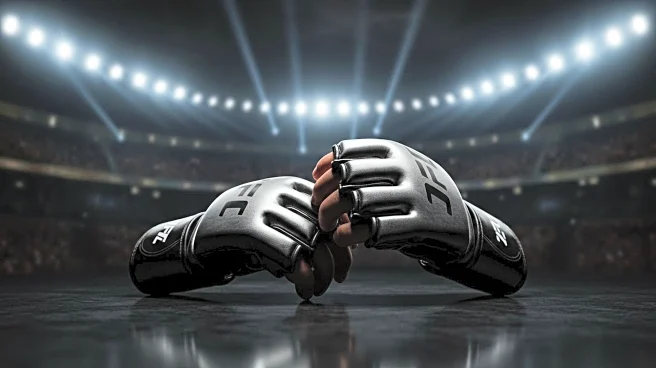What's Happening?
UFC CEO Dana White has expressed skepticism about Jon Jones participating in a proposed UFC event at the White House in 2026. Despite Jones' interest in making a comeback for this event, White has stated that the odds of Jones being included are extremely low, citing a 'billion-to-one' chance. Jones, who retired from MMA in June, has a history of legal issues and has been stripped of his title multiple times. His past includes a felony hit-and-run charge and a doping violation that led to a suspension. The White House event is planned for July 4, 2026, to celebrate the 250th anniversary of U.S. independence, with several UFC stars expressing interest in participating.
Why It's Important?
The potential exclusion of Jon Jones from the White House event highlights ongoing concerns about his reliability and legal troubles, which have impacted his career. This decision by Dana White could influence the UFC's roster choices and event planning, affecting the promotion's reputation and fan engagement. The event itself is significant as it marks a historic celebration of U.S. independence, potentially drawing attention from both sports and political spheres. The involvement of high-profile fighters like Conor McGregor could boost the event's visibility and commercial success, while Jones' absence might alter fan expectations and media coverage.
What's Next?
Dana White has indicated that decisions regarding the White House event's lineup will not be made until next year, leaving room for speculation and potential changes. Jon Jones has re-entered the UFC's mandatory drug-testing program, suggesting he is preparing for a possible return. The UFC will need to navigate the complexities of organizing a high-profile event at a politically significant venue, balancing fighter participation with public relations considerations. Stakeholders, including fans and sponsors, will be watching closely as the UFC finalizes its plans and addresses any controversies that may arise.
Beyond the Headlines
The proposed UFC event at the White House raises questions about the intersection of sports and politics, as well as the ethical implications of hosting a combat sports event at such a symbolic location. The choice of fighters and the event's execution could reflect broader cultural attitudes towards sportsmanship, redemption, and public figures with controversial pasts. The event may also influence future collaborations between sports organizations and government entities, setting precedents for how such partnerships are managed.










